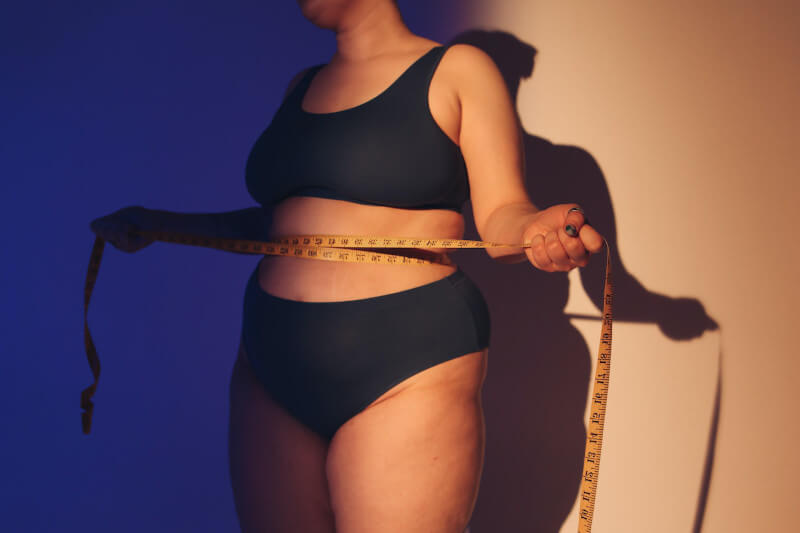Finding Healing in the Pain By Navigating the Grief of an Eating Disorder

You may have a part of you that desires your eating disorder behaviours could go on indefinitely. After all, your eating disorder has always been there for you, a tried-and-true method of handling life’s stresses. It’s in your hands, completely under your jurisdiction. Your eating disorder provides you with a sense of security.
Even if you know you need to get better, it’s natural to feel some sadness about your eating issue. If your eating disorder wasn’t useful to you in some manner, you wouldn’t have turned to it. Realising the futility of your disordered eating habits, you can focus on healing the underlying issues and opening yourself up to new methods to engage in the outside world with curiosity and compassion.
It’s Very Normal to Be Resistant to Changing Your Habits
We understand that getting better is a multi-step procedure. Your struggles with anorexia and body image didn’t appear out of anywhere, and neither will their resolution.
Eating Disorder Rehabilitation Can Cause Sadness, Just Like Any Major Life Transition
Image of a distraught young woman sitting on the steps. Do you have a hard time overcoming your eating disorder? Find out how counselling can help you deal with your loss.
Feelings of Unsteadiness Are a Common Side Effect of the Recovery Process
You may feel unsteady when your health begins to improve. Maybe something is missing in your life, and you’re not sure what it is. You may mourn the positive emotions you associated with your eating issue. You may need to mourn either the “ideal” body you were striving for or the body you once had. Or perhaps your eating disorder has been so pervasive in your life that you no longer recognise yourself without it.
You will recover from your eating disorder just like you would from any other loss. Just because you are thinking about it now doesn’t imply you won’t ever again. It’s all OK if you miss it. You are not a failure at recovery just because you are grieving your eating disorder.
Self-compassion During the Mourning Process
If you’re having trouble recovering from an eating disorder, it might help to think about the needs that were being addressed by the disorder. Find out why you did it and how it helped you. We do not develop an eating disorder by chance. The beliefs and actions associated with eating disorders are reinforced by a system in the brain that serves to maintain the disease. How has the eating disorder improved your life?
A conversation with your earlier self is possible at this time. Did you have trouble getting the social attention you required and started experiencing symptoms of your disease as a result? Did you experience a worsening of your eating disorder at a time when circumstances in your life were actually beyond your control, leading to increased emotions of confusion and anxiety?
Recognize that your former self had requirements and that your former self made appropriate arrangements to fulfill them. Respectfully acknowledge that you have matured to the point where you can see how your eating disorder was a short-term solution to a long-term problem and that you now have the wisdom and insight to find healthier ways to meet your needs and overcome obstacles.
Think about it: now that you’re sober, other than the benefits your eating disorder provided, are there any other ways to achieve those same ends? Are you prepared to lament the loss of those positive aspects of your life if rehabilitation does not provide them? Even though many grief process models were designed for mourning the death of a loved one, they can still be useful for dealing with the sadness that comes from an eating disorder. The Six R’s of Grief is a good example.
Death and Dying: Rando’s Six R’s

Affirm The Death
To do so requires an acceptance and comprehension of the loss. Recognize the positive role that your eating disorder played in making you feel secure and loved, and accept that it is now time to take care of yourself in new ways.
Feelings About the Breakup
Experiencing, naming, accepting, and expressing one’s grief is all part of this procedure. Knowing how to spot and deal with secondary losses is part of the process. Clothes that no longer fit you can be considered a secondary loss associated with recovering from an eating disorder.
Think Back and Live Again
Realistically reflecting on and remembering the absent person(s) or thing(s), and rekindling and re-experiencing the associated emotions, is essential. Reliving the bad times and the emotions that prompted disordered eating is a necessary part of recovery from an eating disorder.
Picture of a young woman with her knees propped up on the window sill. Do you have a hard time feeling steady as you work to overcome your eating disorder? See a grief counsellor to help you deal with your eating disorder past.
Cut Ties With the Past
Obsession with the past and ties to people and things that no longer exist. It may be necessary to relearn healthy eating practices and reject harmful diet culture ideals of beauty to recover from an eating disorder.
Readjust
Make a smooth transition into your new environment by forming a new relationship with the people and things that have left your life, learning to embrace your new role in the world, and forging a fresh sense of self.
To “Develop a New Relationship” With Your Eating Disorder Seems Counterproductive
Whether or not you recognise it, you have gained invaluable insight into who you are, what you value, the people in your life, and what matters most. Your genuine values will become more apparent when you reflect on the moments when your eating issue prevented you from fully experiencing life.
Adapt Yourself
The advantages that your eating disorder has turned against you aren’t evil in and of themselves, and neither are the personality traits that may have made you more vulnerable to disordered eating. Drive, attention to detail, diligence, and the desire for novelty are all excellent personality traits that can be used elsewhere.
Reinvest
This entails investing one’s feelings in something other than one’s current circle of friends, ambitions, etc. Mind and heart are taxed to the breaking point by eating disorders. You’ve earned some breathing room, so use it to take stock of your priorities and set some new, more fulfilling life goals.
It Takes Work to Unlearn Habits
It’s not simple to unlearn habits and ways of thinking you’ve developed about yourself and the world. Accept your feelings of loss and be gentle with yourself while you heal.



